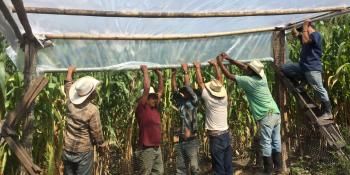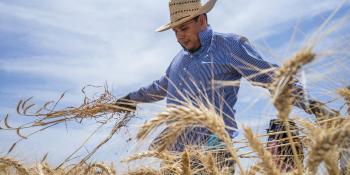Climate-smart solutions for Mali
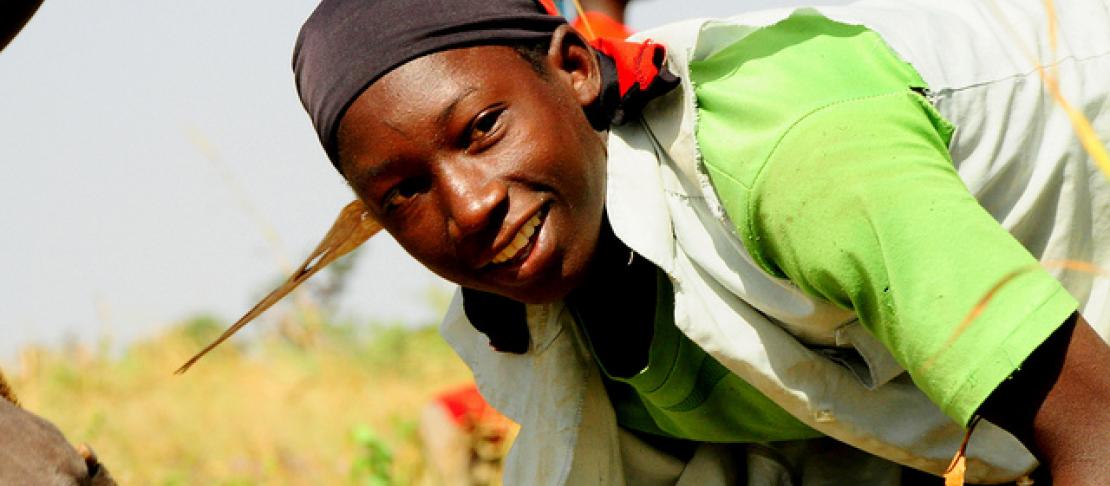
Participatory workshop unites ministry representatives, local governments, research institutions, NGOs, and funders in an initial step to prioritizing CSA practices in Mali.
The Malian decision-makers are working to integrate climate change into agriculture planning and to prioritize investments. Mali is already experiencing irregular rainfall patterns, resulting in dry years. These are becoming more frequent due to climate change, threatening agricultural productivity and growth. The national economy is vulnerable due to 50% of GDP coming from the farming sector and given that 75% of the population lives in rural areas, social welfare is also at stake.
To attain food security objectives under more variable climate conditions, sustainable improvements in agricultural productivity must be integrated within development and climate change policies and strategies.
The climate-smart agriculture (CSA) concept emerges from a need to provide innovative solutions to the complex trade-offs between increasing yields, improving resilience and promoting a low-emissions agricultural sector. Through an integrated approach to development, CSA emphasizes synergies between productivity, adaptation, and mitigation, and environmental, social, and economic co-benefits derived from adopting various agricultural practices, programs, and policies.
One of the challenges related to CSA is the identification and promotion of climate-smart actions in order to help decision makers promote an agriculture system that takes climate variability and change into account in the short and long terms. In this sense, a prioritization process is needed to identify CSA practices and estimate their costs and benefits from a social, economic and environmental point of view.
The International Center for Tropical Agriculture (CIAT) and the CGIAR Research Program on Climate Change, Agriculture and Food Security (CCAFS), have partnered with national counterparts in the development of a participatory framework to prioritize climate-smart practices and programs. The aim is to guide national, regional, and local decision-making towards climate-smart investments in agriculture. This process is also currently being piloted in Guatemala and will be applied in four countries in Asia and Africa during 2015.
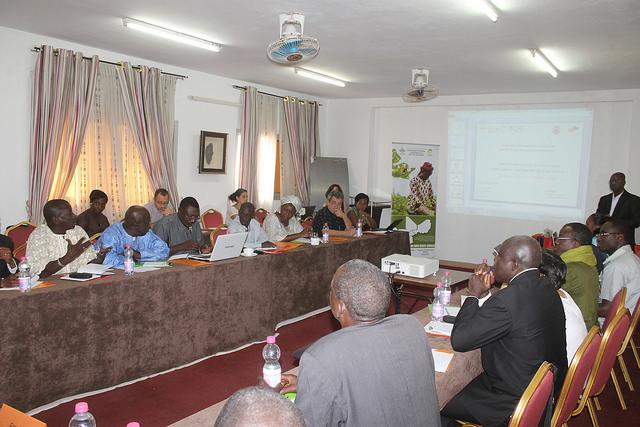
In Mali, a workshop was held from the 18th-19th of November, 2014 that gathered 30 participants representing ministries, local governments, research institutions, NGOs, and funders to prioritize 10 of CSA practices. Participants identified specific criteria related to vulnerable geographic areas and production systems of interest for food security. They then evaluated a long list of practices relevant to the areas of interest and selected best-bets based on the criteria. The workshop has been facilitated by the local NGO The Malian Association of Awakening to Sustainable Development (AMEDD in French) strongly involved in the Climate Change topic and also facilitator for the national dialogue platform for Climate Change, agriculture and Food Security.
Practices were being selected for both the Sahelian and Sudanese regions. In the Sahelian region it was critical that all selected practices respected the rules of access to land. In the Sudanese region participants considered social acceptability as being the most relevant criteria (the live fence has been cut off from the list because it can be seen as an appropriation of the field from the traditional owner of the land). This process led to the election of specific practices for different areas, such as the fixation of dunes in the Sahelian zone, sorghum - niebé association for the Soudanian zone and contour fields for the southern zone. Barriers to adoption of practices and potential solutions were explored. For each identified practice, participants indicated the type of program, organizational change, service, or policy to be developed or strengthened in order to facilitate the implementation of the practice.
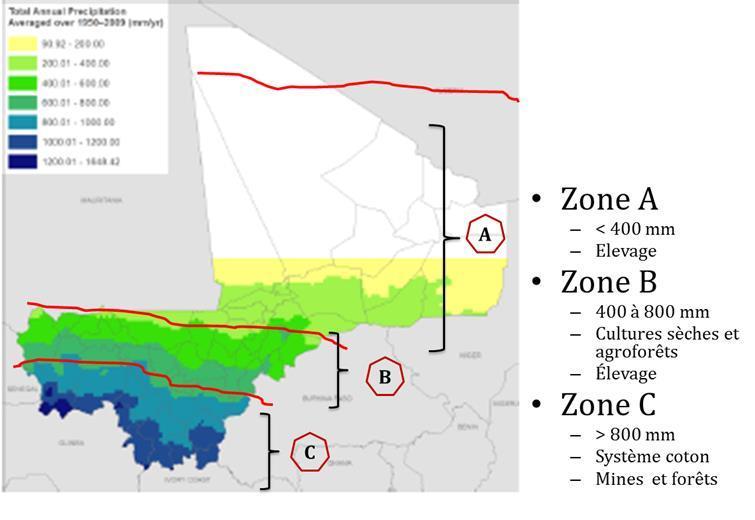
Figure 1: the 3 vulnerable geographic areas identified prior to the workshop by a local expert group,
in which 10 to 15 climate-smart practices have been prioritized. Source: USAID
Besides the prioritization of the practices, the workshop provided a forum for knowledge exchange between participants and for strengtnening institutional links around climate change and agriculture aspects.
Institutions potentially interested in using the result of this prioritization to fund or implement programs around the CSA practices are - The European Union, The Swedish Embassy, the regional government of Sikasso, and NGOs like Sahel Eco and G-Coza – they all noted the utility of the workshop:
We are very interested in the process, and can use the tool to direct our future calls,"
A Climate Fund will launch next year that will fund projects through NGOs or other institutions. This is a great opportunity to appropriate the CSA prioritization process,"
Robert Zougmore, regional leader of the CCAFS program explained that: “the national dialogue platform developed in 2012 is a relevant framework to create synergies around CSA processes”. He also mentioned that Mali as one of the first to pilot the CSA process has the opportunity to be a pioneer in this field.
The next step in the prioritization process is a cost-benefit analysis study for each of the prioritized practices from the first workshop. This will feed into a second workshop where CSA investment portfolios based on best-bet CSA options will be developed. Potential users will continue to be engaged in the next phases of the process to foster effective impact in national and local agricultural decision making.
See photos of the workshop
Fanny Howland (CIAT), f.c.howland@cgiar.org
For general questions about the prioritization framework and projects globally contact: Caitlin Corner-Dolloff (CIAT), c.corner-dolloff@cgiar.org
Read more about the CSA Prioritization Framework: Creating a 'learning center' for agricultural development in Guatemala
Fanny Howland is Research Associate for the International Center for Tropical Agriculture (CIAT). Nadine Andrieu is Researcher of the French Agricultural Research Centre for International Development (CIRAD).
Story edited by José Urrea, Communications Officer for CCAFS Latin America.

